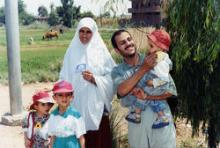
As governments and the donor community work aggressively to strengthen the provision of health care for populations in developing countries, increased effort is placed on building the capacity of for-profit health care providers.
These health care providers are a large, diverse, and growing group who are not only service delivery points - they are businesses. To ensure these for-profit health care businesses continue to provide quality health care services, they have to operate on viable and profitable terms.
This course discusses strategies that donors can use to design programs and implementers can use to deliver activities to ensure that commercial for-profit health care providers have the business, operational, and financial capacity to sustainably provide essential health services.
Objective
By the end of this course, learners will be able to:
- Articulate the important role commercial health care providers play in the overall provision of health care in developing countries.
- Describe the business and financial constraints, challenges, and opportunities commercial for-profit health care providers face in delivering quality health care and addressing essential public health care needs on a viable/profitable basis.
- List the basic requirements a health care entrepreneur needs to manage and operate a sustainable business.
- Describe three state-of-the-art business development programming strategies that facilitate commercial for-profit health care providers' success and long-term sustainability.
- List at least three programming ideas that can increase access to finance for for-profit health care providers.
- Describe how the Development Credit Authority (DCA) works to support access to credit for private health care providers and how a USAID mission can initiate using this mechanism.
Credits
The Healthy Business course has been largely based on knowledge from and materials developed by the PSP-One, Banking on Health, and SHOPS project.
We would like to thank Lisa Tarantino, Taara Chandani, and Meaghan Smith of Banyan Global for their contribution to the course content.
We would also like to acknowledge the following peer reviewers for their valuable input:
- Jasmine Baleva, USAID
- Caroline Quijada, SHOPS Project, Abt Associates
- Jim Shelton, USAID
- Anthony Vaganos, Office of Development Credit, USAID
Time
- 2 hours
Published/Updated
- Friday, December 10, 2010
Course Authors:
Taara Chandani, SHOPs
Bonnie Kligerman, SHOPs
Meaghan Smith, SHOPs
Lisa Tarantino, SHOPs
Course Managers:
- Lisa Basalla, CCP
